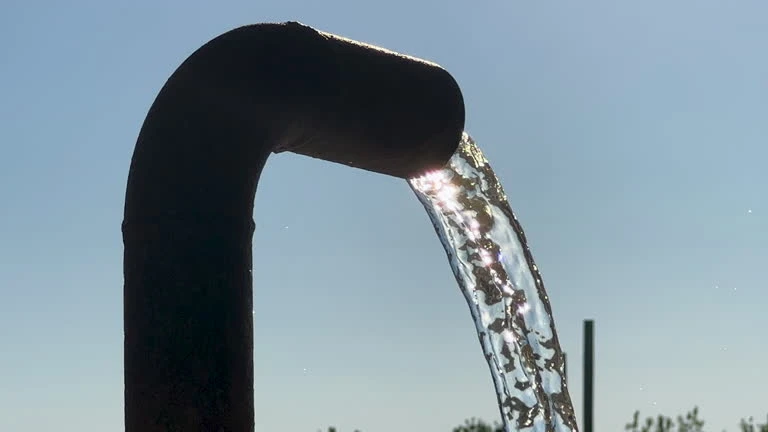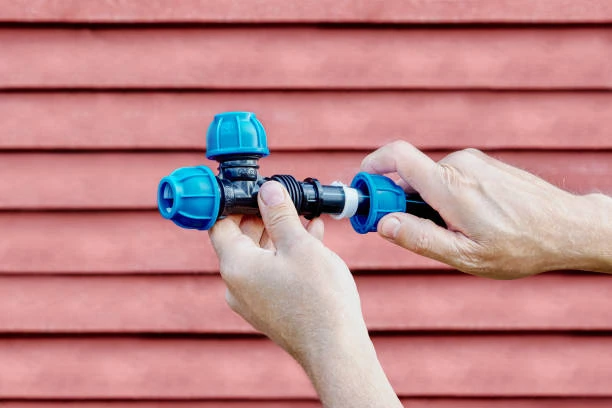Water pipe the quality of drinking Water pipe is one of the most critical concerns for any community, and recent developments in Richmond, Virginia, are shining a spotlight on an important issue: the potential presence of lead in water pipes. The Richmond Department of Public Utilities (DPU) is calling on residents to play a proactive role in safeguarding their health by testing their water pipes for lead. This call to action comes in response to ongoing efforts to reduce lead exposure, particularly in older homes that may still have lead-based plumbing.
In this article, we will explore the importance of testing for lead in water pipes, the risks associated with lead exposure, the role of the Richmond DPU in addressing this issue, and the steps that residents can take to protect themselves and their families. We’ll also discuss the broader implications of lead contamination in water systems and why community engagement is crucial in resolving this public health concern.

Understanding the Issue: Why Test Water Pipe for Lead?
Lead is a toxic metal that was commonly used in plumbing materials, including pipes, solder, and fixtures, until the 1980s. In older homes and buildings, especially those constructed before the 1980s, there is a risk that lead could still be present in the water supply if lead-based pipes were used. Over time, these pipes can corrode, and the lead can leach into the drinking water. Lead exposure through drinking water is a serious health concern, particularly for young children, pregnant women, and infants.
When lead enters the body, it can cause a variety of health issues. In children, even small amounts of lead exposure can impair cognitive development, lower IQ, and cause behavioral problems. In adults, lead poisoning can result in high blood pressure, kidney damage, and reproductive issues. The harmful effects of lead exposure are particularly concerning because they are often not immediately noticeable. That’s why proactive testing and intervention are essential to ensure that homes and neighborhoods remain safe.
Richmond DPU’s Call to Action: ‘Help Us, Help You’
In response to concerns about lead in drinking water, the Richmond Department of Public Utilities (DPU) is urging residents to take part in a citywide effort to identify and eliminate lead exposure risks. Through the “Help Us, Help You” initiative, the DPU is asking homeowners to test their water pipes for lead and report any findings to the city. The initiative aims to increase awareness about the potential risks of lead exposure, while also empowering residents to take control of their own water safety.
Richmond’s water system, like many older cities across the United States, includes infrastructure that may contain lead components. Although the city has made strides in replacing lead pipes in recent years, many older homes and buildings may still be at risk. The goal of the DPU is to remove all lead service lines and fixtures, but this requires the active participation of residents in identifying and testing their plumbing.
By testing the water in their homes, residents can determine whether lead is present in their drinking water and take necessary steps to mitigate the risks. The DPU’s initiative provides the tools, resources, and guidance to help homeowners perform these tests and make informed decisions about the next steps.
The Importance of Water Pipe Testing
Testing water pipes for lead is critical for several reasons:
1.Water pipe Early Detection of Lead Exposure Risks
The first step in reducing the risk of lead exposure is identifying whether lead is present in the water supply. Many homeowners may not be aware that their plumbing includes lead pipes, as lead is not visible in the water and doesn’t have any taste or smell. Testing provides a clear answer and allows residents to take the necessary precautions.
2. Water pipe Preventing Health Risks
Testing for lead ensures that children, pregnant women, and other vulnerable populations aren’t exposed to harmful levels of lead. Early detection allows for intervention, including replacing lead pipes and using filters, to reduce the exposure and protect the health of residents.
3. Water pipe Compliance with Health Standards
Federal and local regulations, such as the U.S. Environmental Protection Agency’s (EPA) Lead and Copper Rule, set limits on the amount of lead that can be present in drinking water. Testing ensures that water systems meet these health standards and comply with regulations. It also helps to identify areas where further remediation is needed.
4. Empowering Residents
By providing access to testing, the Richmond DPU empowers homeowners to take charge of their health and water quality. It encourages residents to be proactive and informed, fostering a sense of community responsibility in maintaining safe drinking water for all.
Steps to Test Water Pipes for Water pipe Lead
Testing water pipes for lead is a simple but crucial process. The Richmond DPU is providing resources to make this process as easy as possible for residents. Here are the steps homeowners can follow to test their water for lead:
Step 1: Determine the Age and Material of Your Plumbing
The first step is to determine whether your home is at risk for lead exposure. Homes built before 1986 are more likely to have lead pipes or lead-based solder in their plumbing systems. Check your home’s plumbing to see if it has any visible signs of lead, such as a dull gray color on the pipes. Lead pipes are typically soft and can be scratched with a key or a coin, which will reveal a shiny, silver surface.
Step 2: Obtain a Water Testing Kit
Richmond DPU offers free water testing kits for residents who are concerned about lead in their water supply. These kits are available online or can be picke up at designated community centers and government offices. The kits contain instructions on how to collect a water sample from your tap for analysis.
Step 3: Collect a Water Sample
Follow the instructions carefully to collect a sample of water from your tap. Make sure to collect the sample from a faucet that is use for drinking or cooking, and avoid any faucets that may have recently flushed. Allow the water to sit in the pipes for at least six hours to ensure that the sample reflects the lead content from standing water.
Step 4: Send the Sample for Analysis
Once the sample has been collecte, send it to the laboratory for testing. The DPU will provide instructions on where to send the sample, and results will typically be available within a few weeks.
Step 5: Interpret the Results
If lead is detecte in your water, it’s essential to take immediate action. The DPU will guide you through the next steps, which may include installing water filters or replacing lead pipes. In cases where high levels of lead are detecte, residents should avoid drinking or cooking with tap water until further remediation is do.
What Happens After Testing?
Once testing results are returne, if lead is found in the water, the Richmond DPU offers several options to help mitigate the issue. These may include:
- Lead Pipe Replacement: If lead pipes are found, the DPU may provide assistance in replacing them with safer materials, such as copper or plastic pipes. Replacing lead service lines is a long-term solution that can eliminate lead contamination at the source.
- Installation of Water Filters: For residents who are unable to immediately replace lead pipes, the DPU may recommend the installation of NSF-certified filters that can remove lead from drinking water.
- Ongoing Monitoring: The DPU will continue to monitor the water quality in affected areas, ensuring that the levels of lead remain within safe limits. The department will also provide updates to residents and work closely with them to resolve any issues.
Long-Term Solutions to Water pipe Address Lead in Water Pipes
While individual actions such as testing and replacing lead pipes are important, the city of Richmond and the DPU are also working on long-term strategies to eliminate lead from the water system. These strategies include:
- Infrastructure Upgrades: Richmond has been gradually replacing lead pipes with safer materials. The city plans to continue these upgrades as part of its broader commitment to improving public health and water quality.
- Public Education and Outreach: The DPU is focuse on educating residents about the risks of lead exposure and the importance of testing and maintaining safe plumbing systems. Public awareness campaigns help inform people about how to protect themselves from lead in water.
- Collaboration with Federal and State Agencies: Richmond’s efforts are aligned with national and state-level initiatives to reduce lead exposure in drinking water. The city is working with the EPA and other agencies to ensure compliance with federal water quality standards.
Conclusion
The Richmond DPU’s “Help Us, Help You” initiative is a vital step in ensuring the safety of drinking water in the city. By encouraging residents to test their water pipes for lead, the department is empowering the community to take an active role in safeguarding their health. As lead exposure remains a serious concern, particularly in older neighborhoods, the DPU’s efforts to provide resources, education, and remediation support are crucial to protecting Richmond’s residents and building a safer, healthier city.
FAQs
1. How do I know if my home has lead pipes? If your home was build before 1986, it may have lead pipes or lead-based solder. You can check your plumbing by looking for pipes that are soft and can be scratch with a key or coin, revealing a shiny, silver surface. If in doubt, you can request a free water testing kit from the Richmond DPU.
2. What should I do if lead is found in my water? If lead is detect, you should avoid drinking or cooking with tap water until the issue is resolve. The Richmond DPU will guide you through the next steps, which may include installing filters or replacing lead pipes.
3. Are the water testing kits really free? Yes, the Richmond DPU provides free water testing kits to residents who are concerned about lead in their water supply. You can obtain these kits online or at designated community locations.
4. How long does it take to get results from the water test? Typically, it takes


















